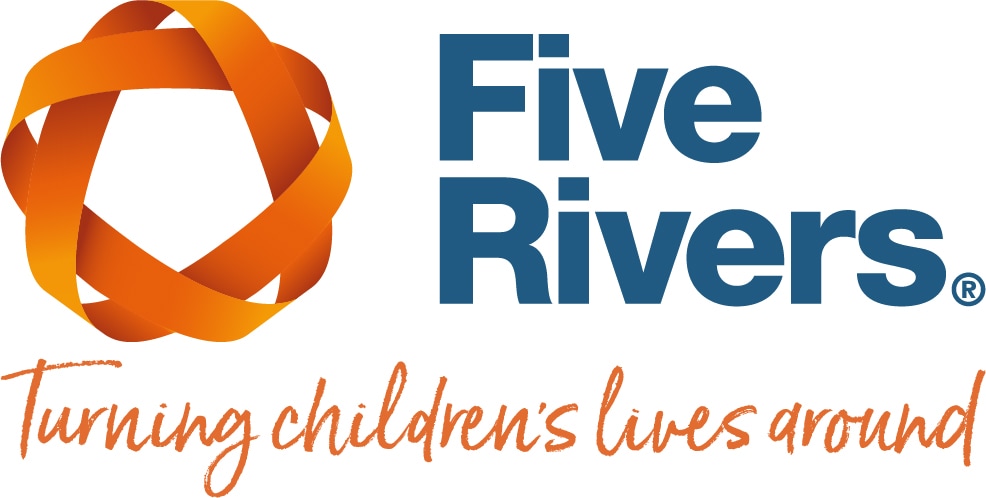‘Growing Together’ this Children’s Mental Health Week
Children’s Mental Health Week is hosted by Place2Be, a children’s mental health charity who encourage a focus on looking after emotional wellbeing from an early age. The theme for this year’s CMHW is ‘Growing Together’; growing emotionally and finding new ways to help each other to grow.
At Five Rivers one of the ways in which we support children and young people to grow is through the collation of baseline assessments once a child has been placed for 6 weeks. Such assessments allow us to review and collectively think together within an integrated case management meeting (ICMM) about the wellbeing, progress, and support that we can offer to children within our care. One of the unique resources we have in Five Rivers is that these meetings are supported by a qualified clinician – a psychologist or psychotherapist – who can help hold the space and can encourage holistic thinking around wellbeing. The assessment process is much more than just processing assessments – the assessments themselves are the catalyst for thinking and creativity and engaging collectively about the children and young people we are trying to assist – and help grow.

Mental Health
Around five children in every class have some form of mental health difficulty and many more struggle with challenges to their emotional wellbeing. We know that the experience of mental health difficulties amongst looked-after children is elevated further, with around 45% having a diagnosable mental health disorder and around 70-80% experiencing mental health concerns. Within Five Rivers, we have our own research and development team who are continually striving to support and explore the mental health needs of the children in our care, and how we can further develop and offer a higher level of support: to both the children and the adults in the system.
Understanding and supporting children with their emotional wellbeing and mental health is essential to not only ensure that their current needs are met, but also in trying to minimise the likelihood of difficulties continuing into adulthood. For children, if they experience adults who encourage them to understand their emotions, they will generate a sense of safety in being able to seek adults when help is needed.
During CMHW, Place2Be are encouraging people – both children and adults – to think about how they have grown, what they need to support them to grow, and how they can help others to grow too. Place2Be have a whole range of resources online, from primary and secondary activities to mental health training for schools. The Assessment and Therapy team at Five Rivers provide a whole range of training for employees and carers and have developed an exciting new program on therapeutic parenting, which will be accessible for all in the near future.
How to engage around growth
Here are some top tips from Place2Be regarding how to think about the different ways in which we can grow. You could also do this as an adult, reflecting on your younger self.
- Talk about when the child was younger.
Recall stories that highlight how the child has developed and changed over the years. If you are a foster parent, kinship carer or residential support worker, you can draw upon memories of when you first met the child or came together as a family or unit. - Notice when the child has developed and grown.
You may be able to look at photos and recognise physical growth; it is also important to praise emotional growth. You could let the child know how proud you are of, for example, the child walking away from a sibling or peer rather than fighting. Celebrate achievements and recognise shifts in the child’s behaviour. - Encourage the child to try new things.
New activities, foods, experiences. Encourage the child to give things a go, and notice when they are trapped in worrying about being ‘good’ at something. This is also something you can consider as an adult – what would you like to try, and what is holding you back? - Listen to the child’s hopes and dreams for the future.
Encourage the child to see that the things they are doing now are steps towards who they may want to become in the future. If the child shares a particular interest, how can you encourage this to grow? - Support the child to learn from tough situations.
Support the child to understand that difficulties help us to grow and develop, and going through hardship, with the right support, allows us to increase our resiliency.
Further activities and resources
To use with children:
- Here are a couple of links to art-based activities which you can try with children – or by yourself – too:
- Support Balloon aimed at primary-aged children.
- My Changing Shapes aimed at secondary-aged children.
- Feelings activities aimed at children aged 5 to 11
- Talking about mental health – an animation and toolkit
- A letter about how I’m feeling – a worksheet children can use to express their feelings and understand their triggers
For carers:
- You’re never too young to talk mental health – a leaflet providing advice and guidance to parents and carers about how to create conversations around feelings.
- MindEd: talking to my child – supporting communication with children and adolescents during difficult times.
